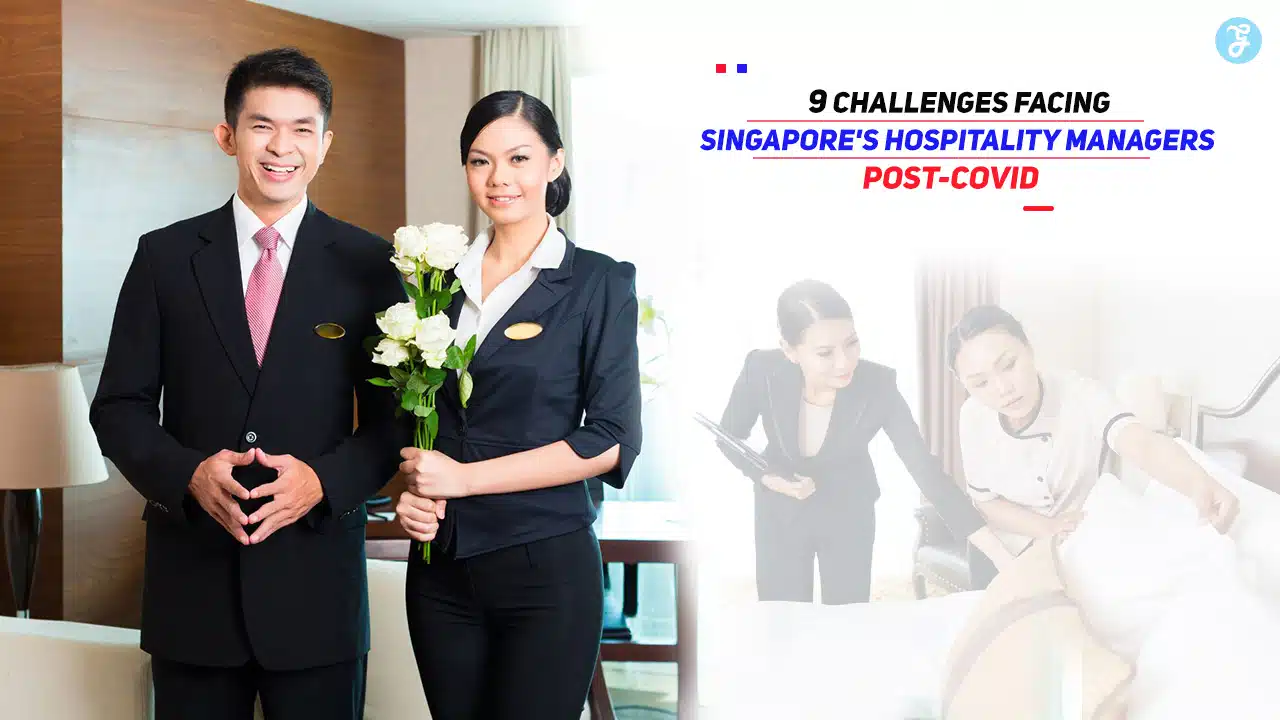The COVID-19 pandemic brought unprecedented disruption to the global hospitality industry, and Singapore was no exception. As the city-state adapts to a post-COVID reality, its hospitality sector is undergoing significant transformations.
While the reopening of borders and the return of international tourists have been positive signs, hospitality managers face an array of challenges that require innovative solutions and resilience.
In this detailed article, we explore the nine most pressing challenges Singapore’s hospitality managers encounter and strategies to navigate this new landscape.
1. Labor Shortages and Retention Issues
The hospitality industry in Singapore was hit hard by the pandemic-induced labor shortages. Many workers left the sector during the downturn, either due to layoffs or career changes. The struggle to attract and retain talent remains a critical challenge.
Contributing Factors
- Exodus During COVID-19: Many workers pivoted to other industries for stability.
- Increased Competition: Other sectors now compete for the same pool of skilled labor.
- Demand for Work-Life Balance: Hospitality jobs often require long, irregular hours, making them less attractive.
Solutions
- Improved Compensation Packages: Offering competitive salaries and benefits to retain talent.
- Upskilling Programs: Investing in training and development to attract workers looking for career growth.
- Flexible Work Arrangements: Implementing job-sharing or staggered shifts to improve work-life balance.
2. Adapting to Changing Guest Expectations
The pandemic shifted customer priorities, with hygiene, safety, and personalized experiences becoming top concerns. Hospitality managers must adapt to these evolving expectations.
Key Changes
- Guests now prioritize properties with stringent cleaning protocols.
- Increased demand for touchless and digital services, such as mobile check-ins and digital room keys.
- Desire for customized, memorable experiences to make up for lost travel time during the pandemic.
Strategies
- Enhanced Hygiene Standards: Adopting visible cleaning measures to reassure guests.
- Investing in Technology: Offering mobile apps for check-ins, room service, and feedback collection.
- Personalization: Using guest data to tailor experiences, from room preferences to curated local itineraries.
3. Financial Recovery and Profitability
While tourism is rebounding, many hotels and hospitality businesses in Singapore are still grappling with the financial strain caused by extended closures and reduced occupancy rates.
Challenges
- High operating costs in Singapore, including labor, utilities, and rentals.
- Fluctuating demand, especially with international travel recovery being uneven.
- Pressure to offer discounts and promotions to attract guests, which affects profit margins.
Solutions
- Dynamic Pricing: Utilizing revenue management tools to optimize room rates based on demand.
- Cost Optimization: Streamlining operations to reduce unnecessary expenses without compromising quality.
- Diversification: Exploring alternative revenue streams, such as co-working spaces, day-use rooms, or virtual events.
4. Digital Transformation
The pandemic accelerated the adoption of technology in the hospitality industry. However, implementing and managing digital solutions presents its own set of challenges for managers.
Areas of Focus
- Transitioning to cloud-based property management systems.
- Incorporating AI and machine learning to predict customer behavior and improve services.
- Training staff to effectively use new digital tools.
Recommendations
- Gradual Implementation: Prioritize essential digital upgrades before moving to advanced solutions.
- Training Programs: Equip staff with the skills to operate and maintain new systems.
- Collaboration with Tech Partners: Partnering with tech companies to ensure smooth integration and support.
5. Sustainability and Environmental Responsibility
Sustainability has become a focal point for modern travelers, with many actively seeking eco-friendly accommodations. Singapore’s hospitality sector must align with this global shift.
Challenges
- High upfront costs for adopting sustainable practices.
- Difficulty in balancing sustainability with profitability.
- Educating guests and staff on the importance of eco-friendly initiatives.
Solutions
- Green Certifications: Adopting certifications like Green Mark or EarthCheck to build credibility.
- Energy Efficiency: Installing energy-saving devices such as LED lighting and smart thermostats.
- Sustainable Sourcing: Using locally sourced and sustainable materials for operations.
6. Competitive Market Landscape
Singapore is known for its highly competitive hospitality industry, with luxury hotels, boutique stays, and budget accommodations vying for the same pool of travelers.
Key Challenges
- Differentiating from competitors offering similar services.
- Keeping up with global brands entering the local market.
- Balancing innovation with maintaining traditional hospitality values.
Strategies
- Unique Selling Points (USPs): Highlighting unique features such as heritage, architecture, or location.
- Collaborations: Partnering with local businesses for exclusive guest experiences.
- Marketing Campaigns: Leveraging social media and influencers to target specific demographics.
7. Health and Safety Regulations
Post-COVID, strict health and safety protocols have become the norm. While necessary, they can be challenging to implement consistently.
Issues Faced
- Ensuring compliance with evolving government regulations.
- Managing guest frustrations with mandatory procedures, such as vaccination proof or testing.
- Training staff to handle health and safety concerns effectively.
Solutions
- Clear Communication: Providing guests with detailed information about protocols before their stay.
- Regular Audits: Conducting internal audits to ensure adherence to regulations.
- Dedicated Health Teams: Assigning staff to focus on health and safety measures.
8. Supply Chain Disruptions
Global supply chain issues, exacerbated by the pandemic, have created challenges for sourcing essential goods, from food supplies to cleaning products.
Challenges
- Delays in receiving imported goods due to global shipping bottlenecks.
- Increased costs for essential items, impacting overall budgets.
- Difficulty in sourcing sustainable products locally.
Recommendations
- Local Partnerships: Collaborating with local suppliers to reduce dependence on imports.
- Inventory Management: Keeping a buffer stock of critical supplies.
- Flexible Sourcing: Diversifying suppliers to mitigate risks of disruptions.
9. Staff Well-being and Morale
The pandemic took a toll on hospitality staff, with many facing burnout, job insecurity, and health concerns. Ensuring employee well-being is now a top priority.
Challenges
- Addressing mental health issues caused by job-related stress.
- Rebuilding trust and morale among staff post-pandemic.
- Providing training to meet new operational demands.
Strategies
- Mental Health Support: Offering counseling services and wellness programs.
- Recognition and Rewards: Acknowledging staff contributions to boost morale.
- Inclusive Leadership: Encouraging open communication and feedback to address concerns.
Takeaways
Navigating the post-COVID hospitality landscape in Singapore requires resilience, adaptability, and innovation. From labor shortages to evolving guest expectations, the challenges are manifold, but so are the opportunities for growth and transformation.
By focusing on sustainability, digitalization, and employee well-being, Singapore’s hospitality managers can rebuild a stronger, more resilient industry that continues to set global standards.
With strategic planning and collaboration, the hospitality sector can not only overcome these challenges but thrive in a new era of travel and tourism.








































